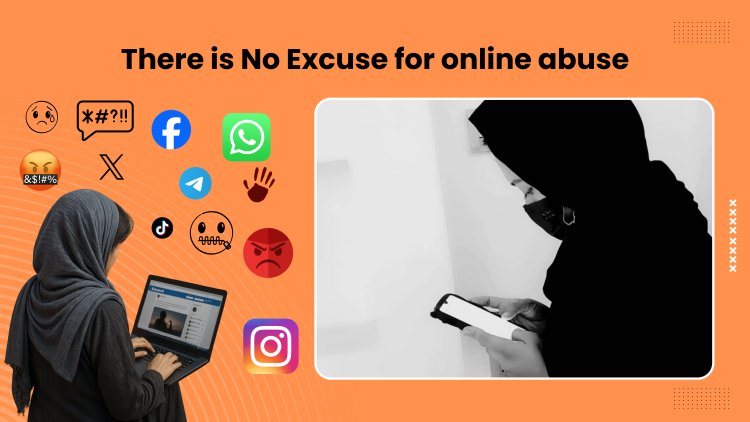A Woman Poet’s Battle with Digital Patriarchy in Afghanistan

The “16 Days of Activism” campaign is a global movement aimed at raising awareness and ending gender-based violence against women and girls. Held annually from November 25 (International Day for the Elimination of Violence Against Women) to December 10 (Human Rights Day), the campaign brings together countries, civil society organizations, and activists. This year’s theme, “United to End Digital Violence Against All Women and Girls,” emphasizes the urgent need to combat online harassment and discrimination.
The Rights Monitor Media will cover the campaign by sharing news, reports, personal stories, and reflections from Afghan women and girls, highlighting their experiences with violence and restrictions
Yasamin Ahamdi
I live through writing, I grow through writing, and without it, I am like someone whose fingers have been severed.
Yes—writing is that essential and vital to me. I am a poet. From the moment I wrote my first poem to the publication of my first poetry collection, three years passed.
I started writing poetry at seventeen, published my first collection at twenty, and now I am twenty-six. For many years, I have lived in the world of words—laughed with them, cried with them. I have danced with my poems and spilled the pomegranate-red blood of my emotions into the laps of the girls in my poems.
Poems that were entirely the voices of the girls of my country—the sound of their cut hair, the voices trapped in their throats, the songs buried in their larynxes. And I was responsible, on behalf of all the girls of my country, to remain committed to writing and persistent in living with words.
As a teenager, every morning I would open my notebook and write a few lines—like someone who wakes up and must take their pills. I wrote, even if my fingers were still asleep.
But now, things are different. Today, in an Afghanistan sunk under the shadow of the Taliban, even writing a simple post, a short sentence, a poem, a story, or even a meaningless like on Facebook can cost a girl her security—or her life.
Digital violence—something I once only read about in news reports—slowly entered my life.
The first time it happened was when I wrote a short text about the situation of women in my country—more of a complaint and protest than anything else. Messages from anonymous accounts flooded my Messenger inbox: threats, insults, misogynistic profanity, and attacks directly aimed at my womanhood.
They didn’t need logic or dialogue—because in their eyes, I was weak, irrational, incomplete. In my country, it’s enough to simply be a woman—and enough to speak up—for a wave of hatred and violence from a patriarchal society to pour down on you from behind the screens of the virtual world.
Those terrifying messages nested in my mind. When I wanted to write something, I found myself asking:
"Is it worth it? What if someone sees this? Are you sure nothing will happen to you after posting this? Think about your family."
And my mind drowned in thick, dark confusion and fear.
So I wrote less on Facebook.
For a while, I deactivated my account—shut down all my social media. I went online less and even became afraid of the internet itself. I even started seeing my friends less.
The fear of real and serious consequences ran in my blood. In a city like Herat, under Taliban control, even a small post can draw attention—turn you into a topic of gossip, rumors, or surveillance.
My family was worried—not because they opposed my writing, but because they knew how vulnerable a young woman, a poet, a writer speaking of women, freedom, and resistance to patriarchy and religious fundamentalism could be. And how much society fears such a girl.
I remember once writing a post about girls in Herat and Afghanistan. Someone threatened me in Messenger, saying he would find my address and go after my father and brother.
Maybe it wasn’t real—but its effect was. The fear that infiltrated me was deep. From that day on, I wrote less. My space for writing shrank. I learned to write some things only for myself, not for the public. What I once shared freely—even when Herat was no paradise—became forbidden territory.
Sometimes I feared expressing even my simplest emotions, as if every word could become evidence against me. Any impulsive move could lead to regret.
The digital environment today is nothing like before. I once wrote freely about the books I read, women’s rights, freedom, feminism, patriarchy, or my personal experiences in Herat. Now, every time my fingers touch the screen, I ask:
"Is this post worth the cost?"
Yet, I admit: writing is still the only thing that makes me feel alive. I breathe through writing—even if I must hide part of my voice, even if I must write under a pseudonym.
This enforced silence has become part of life for Afghan women, but silence is not always the end. Sometimes silence is a form of resistance—a feminine form of resistance. Writing in the shadows. Writing under a false name. Writing for ourselves, not for the public.
I still write—less and more cautiously, but with the same pain flowing through the veins of my life. And maybe that is enough to say: digital violence may muffle our voices, but it cannot silence them entirely.
I must stay. I must not forget writing. I must not forget resistance.
